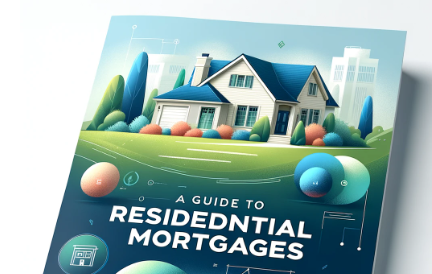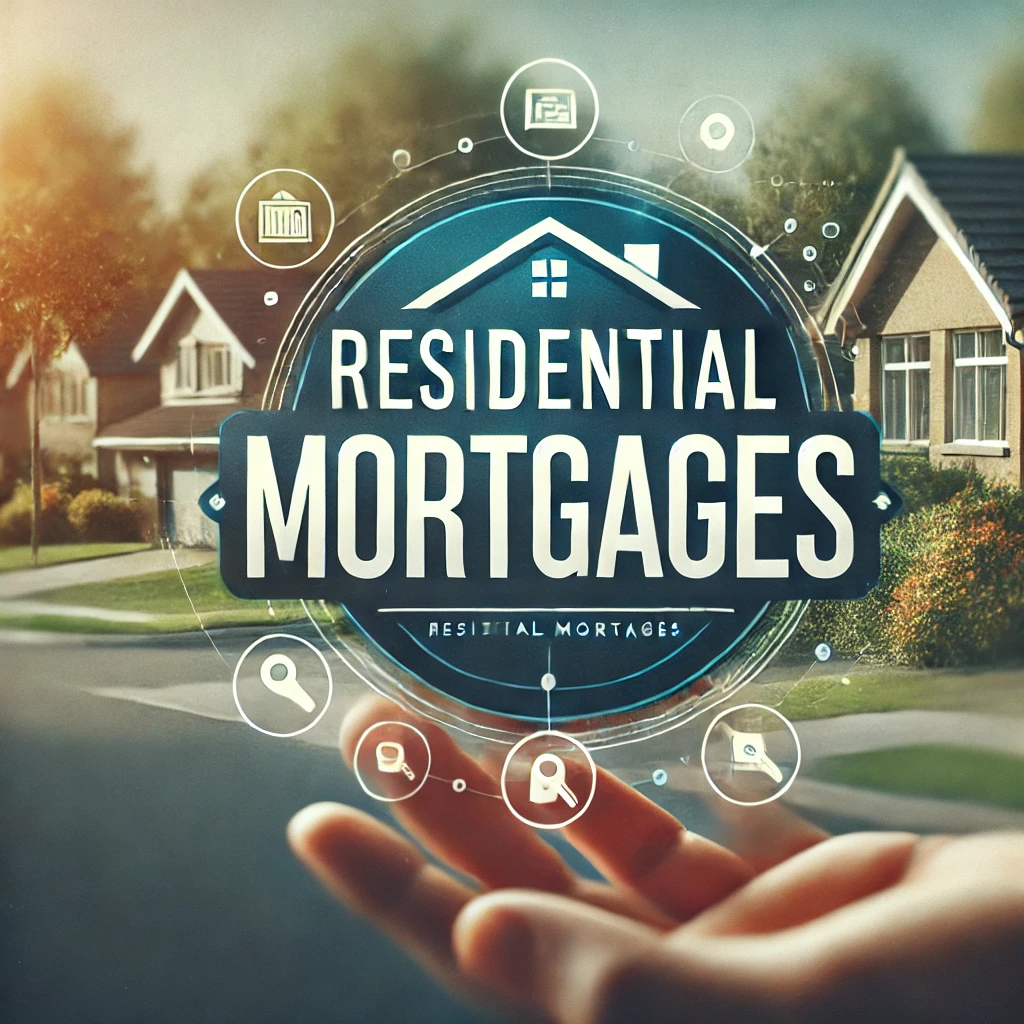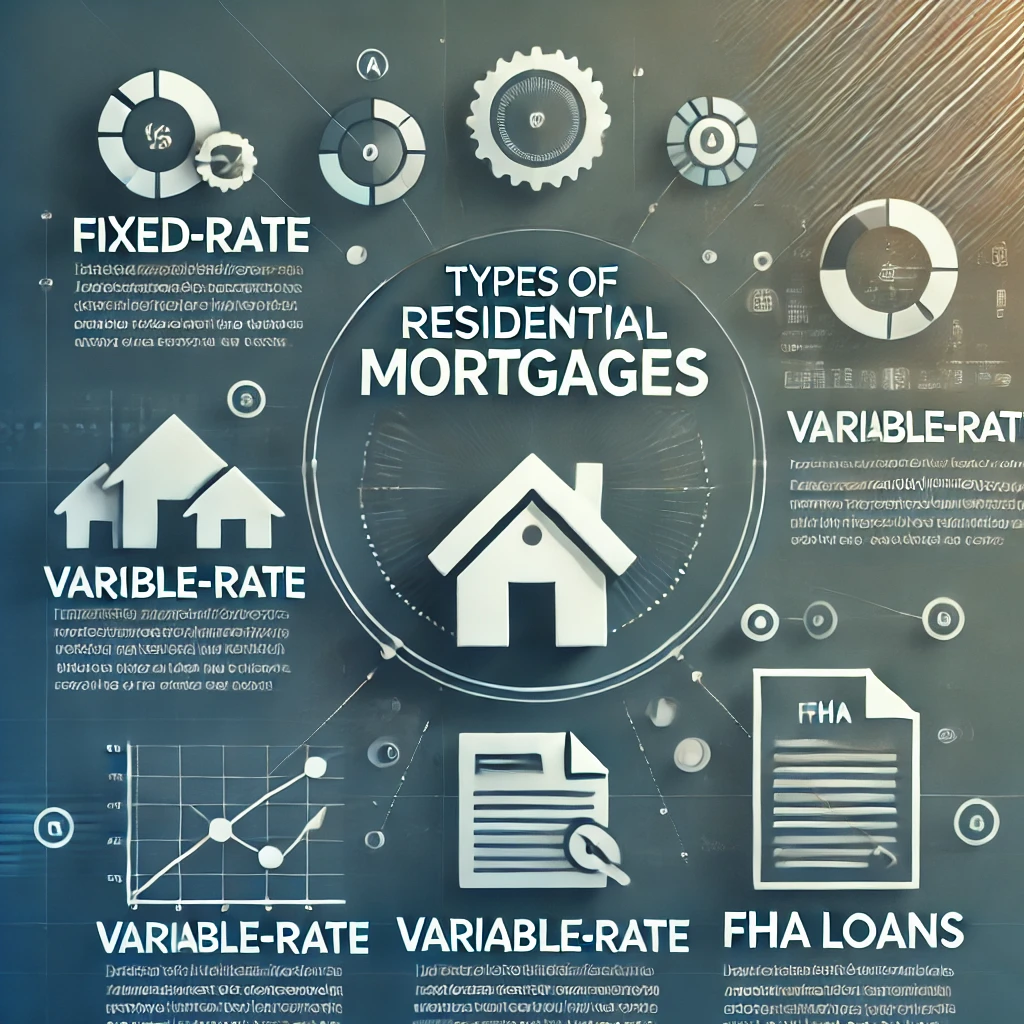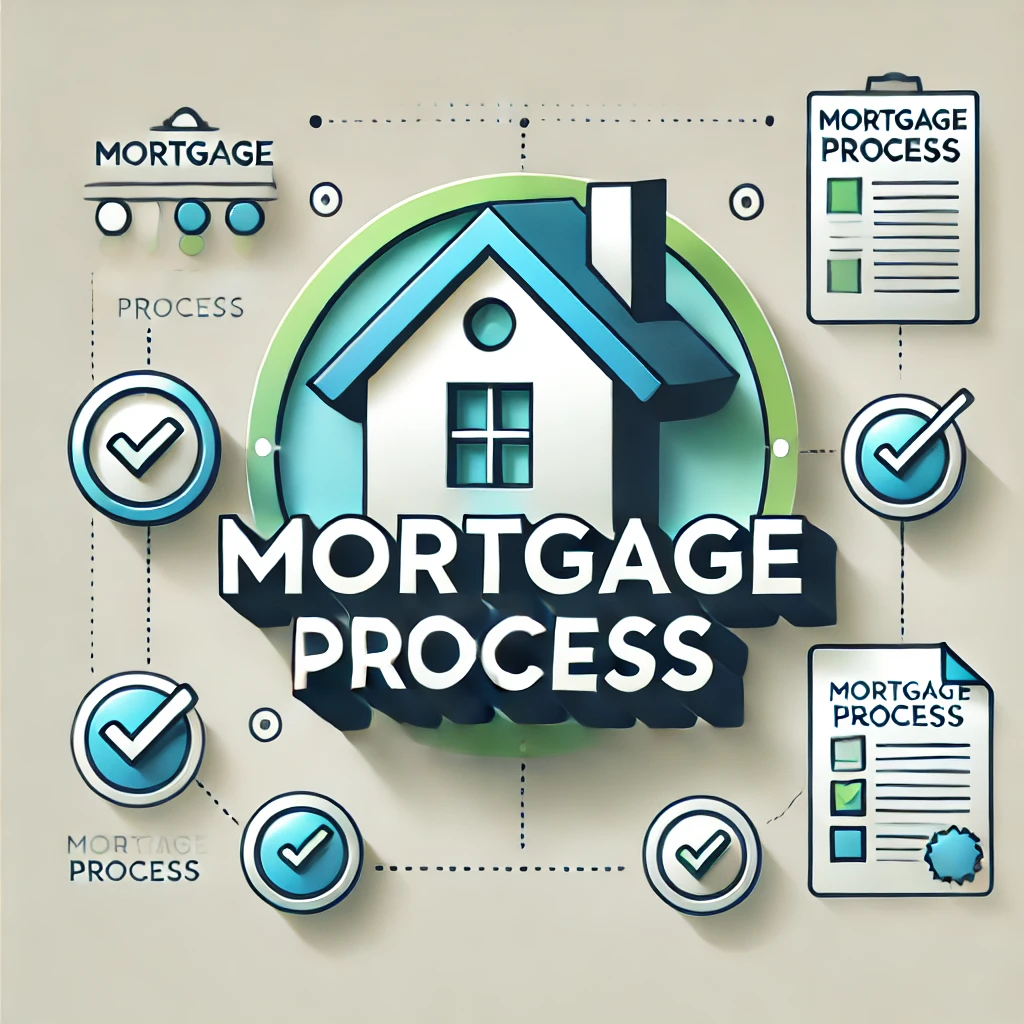
Securing a residential mortgage is a key step for anyone looking to purchase a home. As one of the most common types of loans, residential mortgages make homeownership accessible by spreading the cost of a property over an extended period. In this guide, we’ll explore what residential mortgages are, how they work, and tips to help you secure the best deal.


A residential mortgage is a loan specifically designed for individuals purchasing or refinancing a home they intend to live in. The borrower agrees to repay the loan, including interest, over a set period, typically ranging from 15 to 30 years. These loans differ from commercial mortgages, which are used for business or investment properties.
Residential mortgages come in various types to suit different financial situations:


The mortgage process involves several stages:
1. What’s the difference between pre-qualification and pre-approval? Pre-qualification is an estimate of your borrowing capacity, while pre-approval involves a thorough review of your financials and is more reliable.
2. How much should I save for a down payment? Aim for at least 20% of the home’s purchase price to avoid PMI, but some loans require as little as 3%.
3. Can I pay off my mortgage early? Yes, but check for prepayment penalties. Paying off early can save on interest over the loan term.
4. What happens if I miss a payment? Missing payments can lead to late fees, damage to your credit score, and eventually foreclosure if unresolved.
5. Should I choose a fixed-rate or adjustable-rate mortgage? Fixed-rate mortgages are ideal for stability, while ARMs work for short-term savings if you plan to move or refinance.
A residential mortgage is more than just a loan; it’s a stepping stone to homeownership and financial growth. By understanding how residential mortgages work and preparing ahead of time, you can navigate the process with confidence. For personalized advice, consider consulting a mortgage broker who can help you find the best loan options for your unique situation.
Are you seeking additional information regarding a residential mortgage or need more technical support? This basic guide should help but we have specialized mortgage brokers that can explain further and in ways you may better understand. Our team at Mortgage Force has been providing residential mortgages for clients and are backed by 5-star reviews within our Google business page.
If you enjoyed this article and found it informative, please leave us a review! Thank you.
We not only provide you information. Our team of hard working, dedicated and experienced mortgage brokers are able to secure a mortgage with you today! Our network of professionals at Mortgage Force are confident that what we can provide a mortgage that suits your best interest with terms that simplify your life.
We are available to help you. Call us! or book an appointment with a mortgage broker.

Posted by MortgageApplyOnline On December 18th, 2024